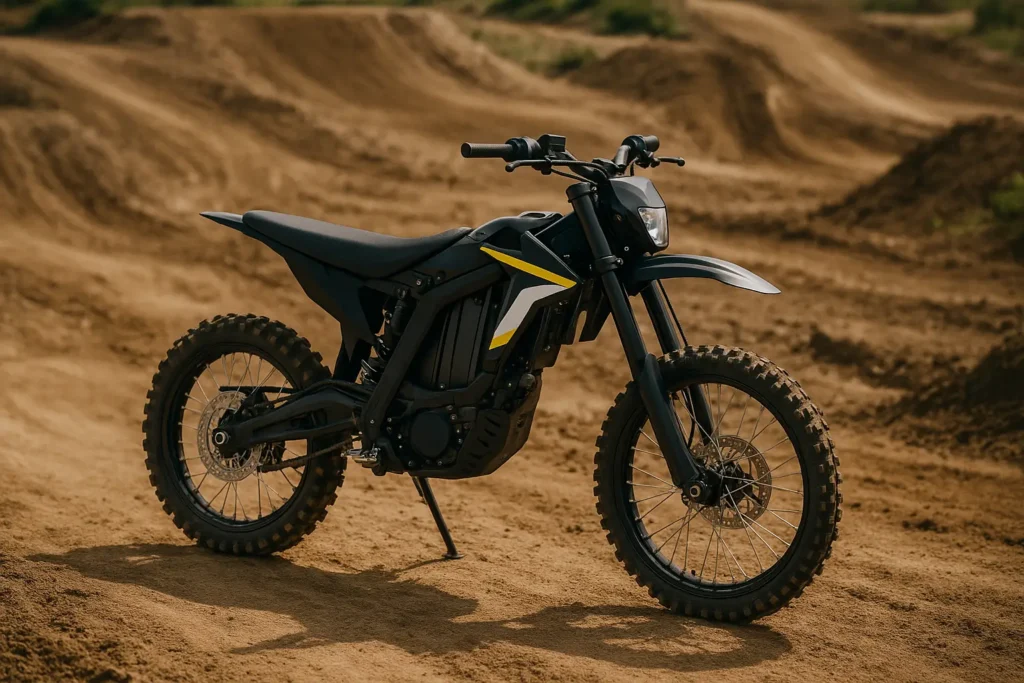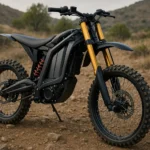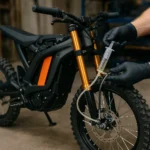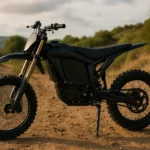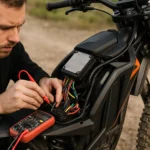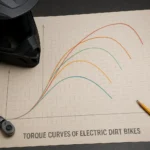Are electric dirt bikes street legal? That’s the million-dollar question echoing through every e-bike forum, Facebook group, and garage chat.
If you’ve ever dreamed of zipping down the road on your electric dirt bike, feeling the silent torque kick in as you breeze past traffic, you’re not alone.
These machines are gaining traction fast, combining off-road adrenaline with the promise of clean, electric mobility.
But here’s the catch: just because it’s electric doesn’t mean it’s legal. And that’s where things get messy.
Navigating the legal terrain around electric dirt bike regulations isn’t just confusing—it’s a potential minefield of fines, impoundments, and red tape.
Many riders assume that if a bike is electric, it must be a street legal e-bike. Spoiler alert: that’s not always the case.
We’re not just throwing around buzzwords like dual-sport, DOT compliance, or motorcycle classification.
In this guide, we’ll break down exactly what separates a street legal electric motorcycle from a trail-only beast. From vehicle classification standards to DMV paperwork, we’ve got you covered.
So buckle up, because we’re diving into the world of electric dirt bike laws, licensing, registration, and state-specific loopholes that even seasoned riders miss. 🚦
Whether you’re riding a Sur Ron, Stark Varg, or some custom hybrid build, this is the guide that might just save your wallet—and your weekend ride.
Why Most Electric Dirt Bikes Aren’t Street Legal (And How to Tell the Difference)
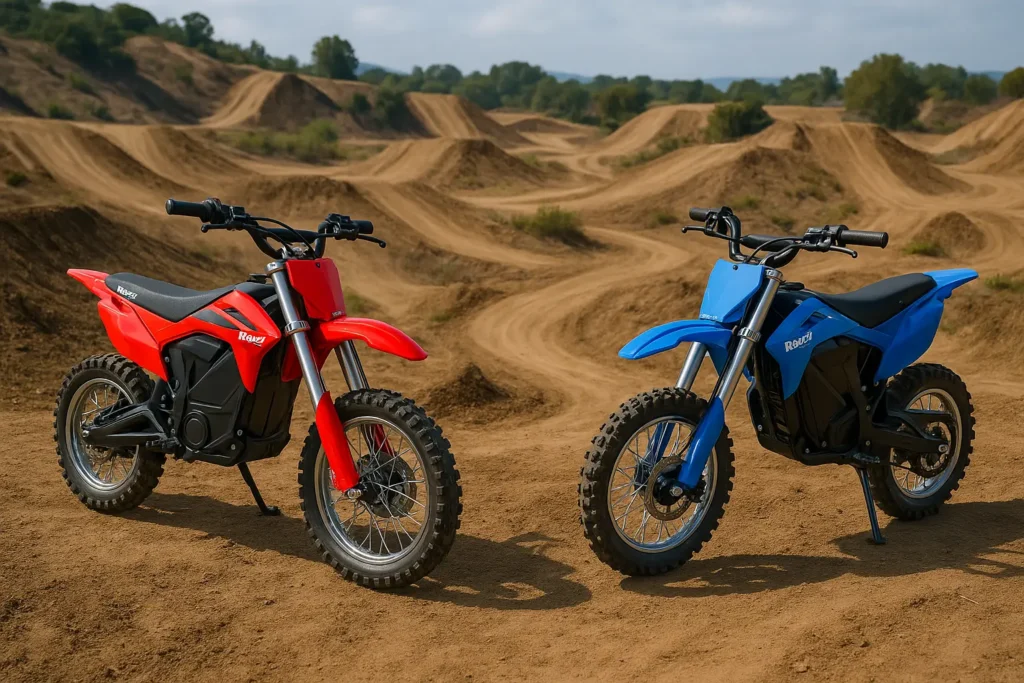
When asking “Are electric dirt bikes street legal?”, the answer begins with understanding what makes any vehicle road-ready in the eyes of the law. Many new riders assume that just because a bike is electric, it’s automatically allowed on public roads.
But in reality, whether it’s electric or gas-powered, a dirt bike must meet strict street legal requirements to be considered roadworthy. And spoiler alert: most don’t.
To be classified as a street legal vehicle, a motorcycle or bike must come equipped with a specific list of components.
We’re talking DOT-approved headlights, brake lights, turn signals, rearview mirrors, and a functioning horn.
You’ll also need DOT-rated tires, a license plate mount, and sometimes even a speedometer and odometer.
Beyond equipment, the bike must be registered with the DMV, insured, and the rider must hold the appropriate license or endorsement.
These are non-negotiables if you plan to ride anywhere beyond your backyard or a trail system.
Now, let’s define what a dirt bike really is. These bikes are purpose-built for off-road use. They come with knobby tires, long-travel suspension, lightweight frames, and often lack everything needed for street use.
Whether you’re riding a gas model or an electric off-road bike, if it doesn’t have the required safety features, it’s not going to pass as a road legal electric motorcycle.
Electric dirt bikes do have their perks. They’re quiet, emissions-free, and often seen as a cleaner alternative to traditional gas models.
But here’s the catch: many still lack critical safety features and are often not recognized by the DMV as street legal vehicles.
This means they fall into a legal gray area—often treated like off-highway vehicles (OHVs) or even as unclassified motorized devices, depending on your state.
So, while the electric motor might help reduce noise complaints or air pollution, it doesn’t automatically grant you permission to ride on city streets.
Bottom line? The issue isn’t whether your bike runs on gas or electricity. The real dividing line is whether your dirt bike meets road safety standards, and if it’s been officially classified for street use.
Before hitting the pavement, check with your local DMV, research motorcycle regulations, and make sure your ride is up to code—because not knowing could cost you big time.
Are Electric Dirt Bikes Street Legal? The General Rule and the Exceptions
Let’s tackle the big question head-on: are electric dirt bikes street legal? The short answer — usually not.
But don’t hop off just yet, because the real answer is layered with exceptions, classifications, and a whole lot of legal nuance. For new riders, understanding these differences is key to staying both safe and compliant.
In most cases, electric dirt bikes are sold as off-road vehicles. That means they’re not equipped with the legal essentials required for road use. Things like turn signals, mirrors, horns, and DOT-certified tires are often missing.
Without these components, your bike might be awesome on the trail — but it’s not getting you down Main Street legally.
These bikes also typically lack titles or certificates of origin needed to register a vehicle with the DMV. No title means no plates, and no plates mean no street.
Just like gas-powered dirt bikes, electric versions face the same red tape. The only difference? You’re swapping out a gas tank for a battery pack.
Now, let’s talk exceptions. Some riders choose to convert their bikes into what’s called a dual-sport setup.
This involves serious modifications — adding lights, reflectors, mirrors, and sometimes even changing tires and brake systems. It’s possible, but far from plug-and-play. Making your electric dirt bike street legal is a project, not a weekend tweak.
It’s also important to understand the difference between low-speed electric bicycles and full-blown dirt bikes. E-bikes with pedals, motor assist, and speed caps of 20–28 mph often fall under separate rules.
They may not require registration or a license. But if your bike has no pedals and high power output, you’re in motorcycle or moped territory, which brings in a whole new set of laws and insurance requirements.
Some electric dirt bikes fall under OHV (Off-Highway Vehicle) classification. That means they’re legal to ride — but only in certain places.
Think private land, motocross tracks, or designated trail systems. Just because it’s legal somewhere doesn’t mean it’s street legal everywhere.
And finally, the wild card: state and local laws. What flies in California might get you fined in New York City. Even neighboring towns can have different enforcement.
So, while federal laws provide a framework, it’s your local DMV or transportation department that has the final say on where and how you ride.
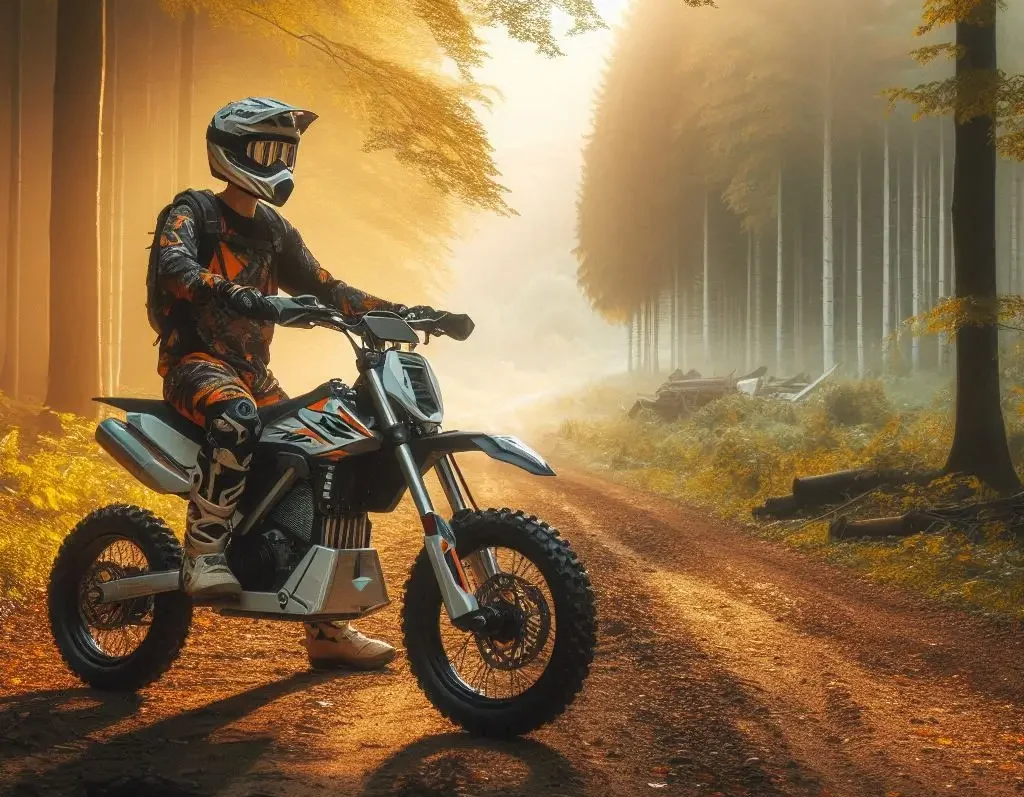
Navigating State-Specific Regulations: Where Do You Stand?
So, are electric dirt bikes street legal in your area? A lot depends on your location. Laws vary from state to state, and even city to city — what’s allowed in one place might get you fined in another.
California: Tough Laws, Tougher Conversions
In California, most electric dirt bikes are classified as off-highway vehicles. That means they’re not street legal out of the box. Converting one involves DOT equipment, inspection, and registration with the DMV.
Check out our breakdown: Are electric dirt bikes street legal in California
Texas: A Bit More Flexible — But Still Tricky
In Texas, the rules are more relaxed, but not exactly easy. Your bike needs to meet road safety standards, and you must register it properly. Motorcycle licensing is also required for most models.
Learn more here: Are electric dirt bikes street legal in Texas
Florida: Similar Rules, Unique Classifications
Florida has its own quirks. Depending on specs, your e-dirt bike may qualify as a motor vehicle or an OHV. Street legality depends on classification and inspection.
Details here: Are electric dirt bikes street legal in Florida
New York City: The Harshest of Them All
NYC has a strict stance on unregistered electric vehicles. If your bike isn’t road-legal, it can be seized. Most electric dirt bikes are illegal for street use in the city.
More on that: Are electric dirt bikes legal in NYC
Ontario: A Canadian Twist on the Rules
In Ontario, electric dirt bikes occupy a legal gray area. Without proper lighting and certification, they can’t be registered for road use and are restricted to private property or trails.
Full guide here: Are electric dirt bikes street legal in Ontario
United Kingdom: Confusion and Classification
The UK applies L1e/L3e classification for electric two-wheelers. Without registration and MOT compliance, electric dirt bikes are not legal on public roads.
See the UK details: Are electric dirt bikes legal in the UK
Can You Transform Your Off-Road Beast? Making an Electric Dirt Bike Street Legal
So, can you make an electric dirt bike street legal? The short answer is yes — but it’s not as easy as just adding a headlight. The process is technical, regulated, and often varies by location.
Most electric dirt bikes for adults are sold without the necessary components for street use. That includes things like DOT-approved tires, turn signals, and a properly mounted license plate bracket.
To ride legally, your bike must also have a working horn, mirrors on both sides, and fully functioning headlight, tail light, and brake light. These features must meet the standards set by the Department of Transportation (DOT).
Don’t forget the paperwork. You’ll need a Vehicle Identification Number (VIN), plus registration, title, and insurance. Expect a DMV inspection, especially if you’re converting a model like the Sur Ron or Stark Varg.
Speaking of models, is the Sur Ron street legal? Not by default. But conversion kits exist, and with enough upgrades, you can transform it. The Stark Varg presents even more challenges due to its power and classification as a performance off-road bike.
Finally, weigh the effort against the cost. Making an electric dirt bike street legal isn’t cheap, and in some cases, buying a street legal electric motorcycle might be the smarter move.
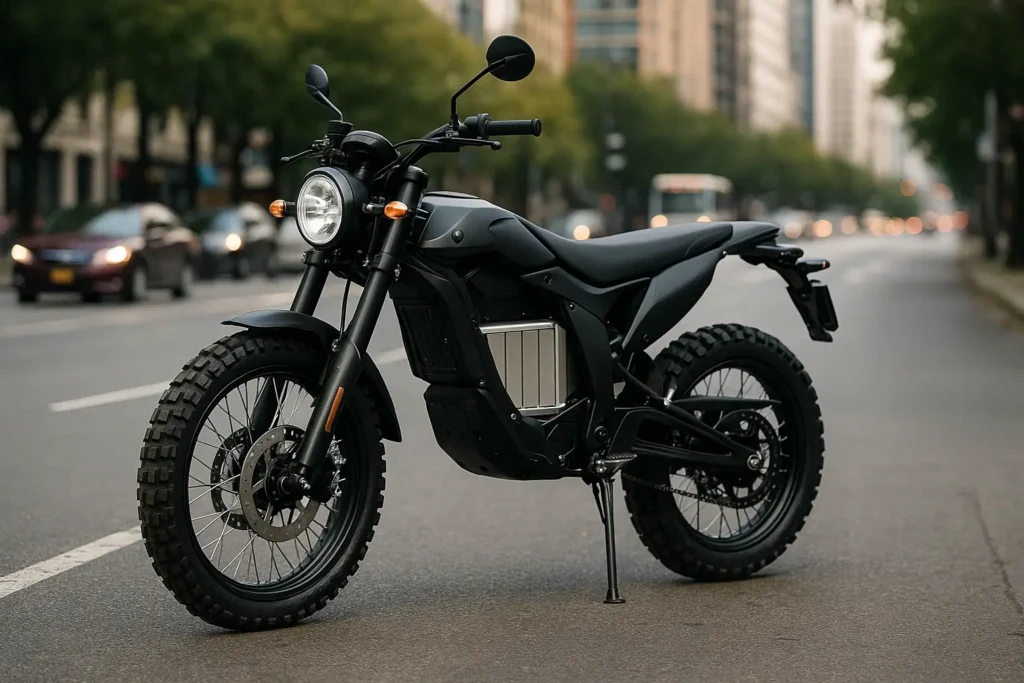
While some high-performance models like the Sur Ron and Stark Varg can be converted, what about popular entry-level electric dirt bikes like those from Razor?
Are Razor Electric Dirt Bikes Street Legal?
If you’re wondering whether Razor electric dirt bikes like the MX350 or MX650 are street legal, the short answer is no — at least, not out of the box.
Razor bikes are designed primarily for recreational off-road use, especially by teens or younger riders. They lack the essential features required to be considered road legal: things like DOT-approved lighting, mirrors, turn signals, horn, proper tires, and a license plate holder.
In most states, these models fall under the category of off-highway vehicles (OHVs) or unclassified devices, which means they’re meant for use on private property, dirt tracks, or trail systems — not public roads.
Some users have modified their Razor bikes for neighborhood use, but even then, they’re operating in a legal gray area. Always check with your local DMV or city ordinances to avoid fines or confiscation.
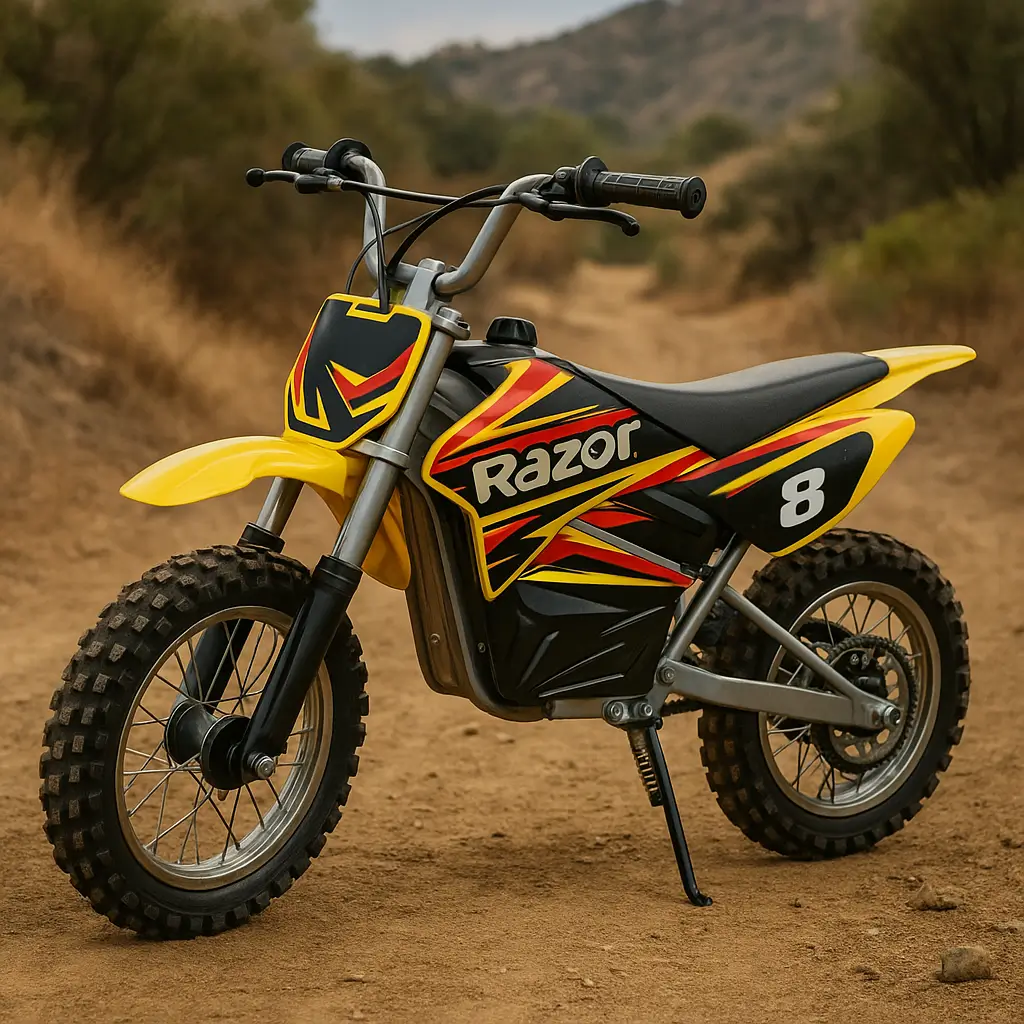
5 Things You Should Know Before Asking: Are Electric Dirt Bikes Street Legal?
If you’ve ever typed “Are electric dirt bikes street legal?” into Google, you’re not alone. But before you make a decision or hit the trails, here are five essential things to know that might save you from fines—or worse.
- Not All Electric Dirt Bikes Are Created Equal
Some models like the Sur Ron or Stark Varg may be powerful, but power doesn’t mean legal. Legality depends on features and certification. - Street Legal ≠ Off-Road Capable
A dirt bike can be incredible off-road but completely illegal on pavement. Always check if your model was designed or converted for both. - Legal Requirements Vary Widely by Location
What’s legal in California might get you pulled over in Florida. Always consult your local DMV before assuming you’re good to go. - Conversions Are Possible, But Not Cheap
Yes, you can make an off-road bike street legal — but it requires time, money, and DMV paperwork. - “Are Electric Dirt Bikes Street Legal?” Isn’t a One-Size-Fits-All Answer
Each bike, brand, and region has its own rules. So the question isn’t just “is it legal?” — it’s “is my bike legal here?”
Common Pitfalls and Misconceptions
Myth #1: “It’s electric, so it’s a bicycle!”
One of the biggest misunderstandings is assuming electric dirt bikes are street legal just because they don’t use gas. But electric dirt bikes are not the same as pedal-assist electric bicycles.
Electric bicycles typically have pedals and are capped at speeds like 20 or 28 mph. In contrast, most electric dirt bikes for adults use throttle-only acceleration and deliver much more power.
Myth #2: “If it has lights, it’s legal.”
Slapping a headlight on doesn’t make your electric dirt bike street legal. Lights must be DOT-approved, correctly positioned, and paired with all required components — including mirrors, turn signals, and a horn.
Without these, even a well-lit bike is still considered an off-road vehicle in the eyes of the law.
Myth #3: “I can ride quietly — no one will notice.”
Yes, electric bikes are quieter. But riding an unregistered electric dirt bike on public roads is still illegal. You risk fines, confiscation, and trouble with your insurance company.
Legal classification isn’t about sound — it’s about registration, VIN, and meeting road safety standards.
The Sidewalk Trap: Don’t Be That Rider
Can you ride an electric dirt bike on the sidewalk? Absolutely not. Sidewalks are for pedestrians, not motorized vehicles.
Even if you’re riding a Sur Ron or another low-noise model, the rules for electric dirt bikes are clear: keep them off the sidewalks, or prepare for a ticket.
Recommendations and Advanced Tips for Responsible Riders
Always Check Local Laws Before Riding Your Electric Dirt Bike
When it comes to electric dirt bikes street legal status, local laws are everything. Always verify current regulations with your DMV, state legislature, or city ordinances before hitting the road.
Legal classifications can change. What was fine last year might be illegal now — especially for adult electric dirt bikes with high power output.
Consider a Dual-Sport Electric Motorcycle for Street Use
If your goal is to ride on public roads, consider a model that’s built to be street legal from the start. These include all required DOT equipment and are easier to insure and register.
A true dual-sport electric dirt bike eliminates the conversion headaches and often offers better performance in mixed environments.
Safety First — Always
Even if your electric dirt bike is street legal, safety should never take a back seat. Always wear a helmet, use hand signals, and respect speed limits.
Traffic laws apply to electric motorcycles just like gas ones. Being legal doesn’t mean you’re invisible to enforcement.
Connect With Local Rider Communities
Joining an online or local electric dirt bike community helps you stay updated. Riders share tips, legal updates, and product recommendations that can save you time and money.
Plus, it’s one of the best ways to discover bike-friendly roads, off-road parks, and real-world feedback on street legality.
Frequently Asked Questions About Street Legal Electric Dirt Bikes
Do Electric Dirt Bikes Need a License Plate?
Yes, if your electric dirt bike is street legal, it must have a license plate. Just like gas-powered motorcycles, registration is mandatory for public road use.
Riding without a plate can result in fines or even impoundment in many states.
Can You Ride an Electric Dirt Bike on Public Roads Without a License?
No. If your electric dirt bike for adults is classified as a motorcycle or moped, you need a valid driver’s license — usually with a motorcycle endorsement.
This applies even to lightweight dual-sport models.
What’s the Legal Difference Between an E-Bike and an Electric Dirt Bike?
Electric bicycles usually include pedals and are limited in speed and power. This exempts them from many regulations.
In contrast, electric dirt bikes often lack pedals and exceed those limits, placing them under motor vehicle laws.
Can Police Tell if My Electric Dirt Bike Is Street Legal?
Yes. Officers are trained to spot missing components like mirrors, signals, or a valid VIN. If something’s off, they’ll know.
To avoid trouble, make sure your electric dirt bike street legal setup is complete.
Are There Federal Laws for Electric Dirt Bikes?
Federal rules mostly cover safety standards like DOT equipment. But state and local laws determine whether your bike is actually road legal.
So always check both before riding.
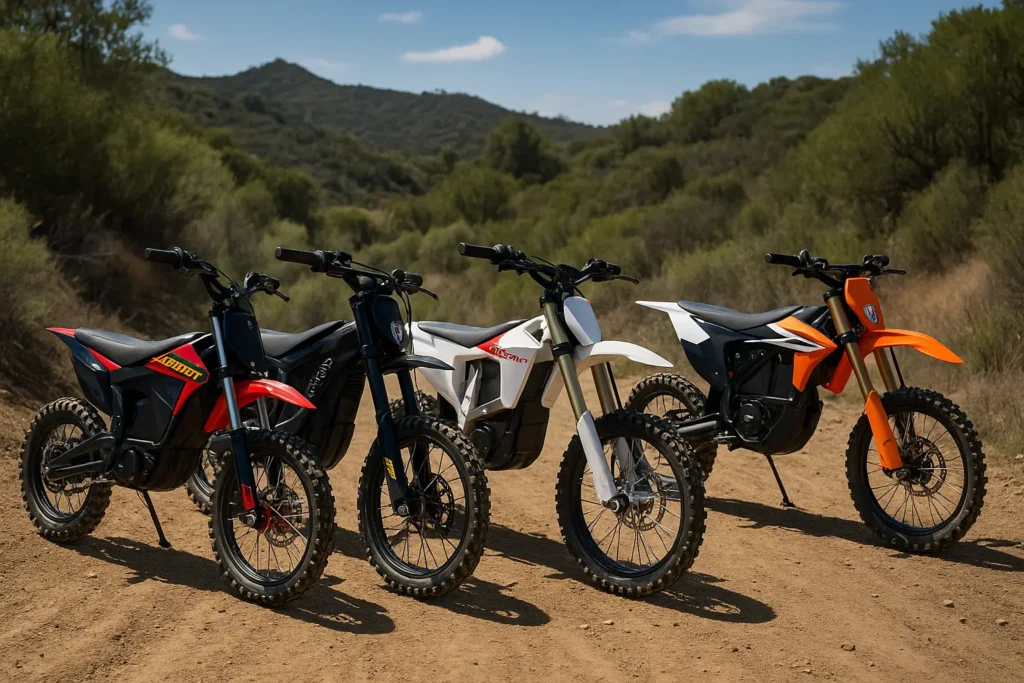
Related Reads and Connected Topics
Want to Learn More About Street Legal Electric Dirt Bikes?
Still curious about electric dirt bikes street legal status in different regions? These guides dive deeper into laws, requirements, and real-world riding tips.
- Are electric dirt bikes legal in NYC – Learn if you can ride your e-dirt bike in the Big Apple.
- Are electric dirt bikes legal in the UK – Understanding UK laws for electric dirt bikes.
- Are electric dirt bikes street legal in California – California’s specific requirements for electric dirt bikes.
- Are electric dirt bikes street legal in Texas – Navigating electric dirt bike laws in Texas.
- Are electric dirt bikes street legal in Florida – Florida’s rules for electric dirt bike street legality.
- Are electric dirt bikes street legal in Ontario – What you need to know about riding in Ontario, Canada.
- Are kids electric dirt bikes legal – The legality of electric dirt bikes for younger riders.
- Are electric dirt bike street legal UK – A detailed look at making your e-dirt bike roadworthy in the UK.
- Are electric dirt bikes illegal in the UK – Dispelling myths about UK electric dirt bike laws.
- Can the Stark Varg be street legal – Is the high-performance Stark Varg street legal?
- Is the Sur Ron street legal – The truth about Sur Ron street legality.
- Can you make a Sur Ron street legal – A guide to converting your Sur Ron for road use.
- Can you ride an electric dirt bike on the sidewalk – Understanding where it’s safe and legal to ride.
- Can you ride a Sur Ron on the sidewalk – Sidewalk riding rules specifically for Sur Ron riders.
- Are electric dirt bikes street legal in Illinois – Everything you need to know about riding legally in IL.
- Do you need a license for an electric dirt bike – License rules and age restrictions explained.
- Do you need a license for a Sur Ron – What documents are required to ride your Sur Ron legally?
- Can you ride electric dirt bikes on the road – Tips for riding legally on public roads.
- Do electric dirt bikes need to be registered – When registration is required and how to do it.
- Is a Segway X260 street-legal – Can this stealthy model be used legally on the street?
- Are razor electric dirt bike street legal – Are these popular entry-level models allowed on roads?
- What class is a Sur Ron – Understand the legal category that defines how your Sur Ron is classified: e-bike, moped, or motorcycle?
Join Our Ride! Share the Knowledge About Electric Dirt Bikes Street Legal Rules
Found this guide helpful in answering are electric dirt bikes street legal? We hope it cleared things up!
The world of electric off-road motorcycles is growing fast, and knowing the legal side is key to enjoying every ride.
If you learned something new about making electric dirt bikes street legal, share this post with your riding crew.
Spread the word in groups, forums, or on your favorite social platform.
Let’s keep every rider informed, legal, and ready to ride safe — on and off the road!

Tyler Brooks is the storyteller behind most of the content at Electric Dirt Zone. With over 10 years of experience in digital media and a lifelong love for off-road riding, he blends technical insight from the team with engaging, down-to-earth writing. When he’s not turning dusty trail rides into blog posts, you’ll probably find him snapping pics before things get too wild.

